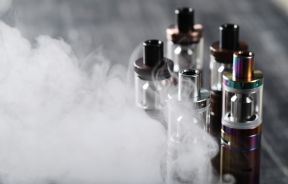Ketamine Helps Patients With Bipolar Disorder, Depression, But Works Differently Among The Two

Researchers from The National Mental Health Institute (NIMH) at the National Institutes of Health have been studying the antidepressant effects of ketamine — a hallucinatory drug commonly known as “special k” — for years now. While prior studies confirmed the drug can rapidly reduce disordered symptoms, the latest from NIMH refines these findings to emphasize ketamine affects bipolar and depression patients differently.
“Our findings help to deconstruct what has traditionally been lumped together as depression,” Dr. Carlos Zarate, of NIMH, said in a press release. “We break out a component that responds uniquely to a treatment that works through different brain systems than conventional antidepressants — and link that response to different circuitry than other depression symptoms.” Zarate and his team were able to do this after infusing the drug or a placebo into 36 patients in the depressive phase of bipolar disorder.
When patients were on the drug and placebo, researchers could detect any mood changes on a scale of anhedonia (the inability to experience pleasure from enjoyable activities) and depression. Isolating the two helped researchers to see that ketamine triggers a strong anti-anhedonia effect sooner, and independent of, other effects. Specifically, researchers discovered levels of anhedonia improved within 40-minutes of patients taking ketamine compared to those who took a placebo; depressive symptoms improved within two hours.
These effects boil down to a person’s brain. Ketamine essentially jump starts a part of the brain deep in the right hemisphere, which is associated with increased motivation and anticipation of pleasurable experience. “Ketamine's short onset time is one of the most useful aspects of the study, since the current crop of anti-depressants can take between three and six weeks (and sometimes even longer) to take effect,” Kevin Lally, lead study author, told VICE News.
One (major) caveat: Ketamine is not approved by the United States Food and Drug administration as a treatment for depression. In fact, it was originally developed as an animal anesthetic, a staple in veterinary practices. Plus, hallucinations, delirium, and amnesia have been documented when the drug is abused. Future research hopes to explore the practical ways in which ketamine can be used to treat mental illness.
Bipolar disorder is also known as manic-depressive illness. Symptoms can include intense emotional episodes, a mixed state of euphoria and depression, as well as extreme changes in energy, activity, and sleep. While it can develop in a variety of ways, it can’t be cured. However, it can be treated effectively over the long-term. Working closely with your doctor to develop a maintenance plan combining medication and psychotherapy, per NIMH's recommendation, will improve symptoms in the time it takes science to discover how ketamine can be used safely.
Source: Lally N, Nugent AC, Luckenbaugh DA, Ameli R, Roiser JP, Zarate CA. Anti-anhedonic effect of ketamine and its neural correlates in treatment-resistant bipolar depression. Translational Psychiatry, 2014.



























